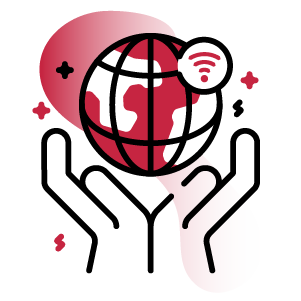
El concepto de Computación Social ha aparecido recientemente, este nuevo concepto se describe como una estructura social en la que la tecnología potencia las relaciones entre individuos y comunidades de forma que los sistemas dan soporte al comportamiento social que se produce entre seres humanos y el sistema, y hacen uso de dicho comportamiento para varios propósitos. Es decir, se trata de grupos de personas que están “computando” algo de forma social. Los flujos de trabajo de sistemas computacionales orientados hacia aspectos sociales, los humanos pueden desarrollar sus competencias, conocimientos y habilidades. Por otro lado, las tecnologías de la información y de la comunicación pueden proporcionar información relevante para los humanos, que pueden utilizarla en sus contextos particulares para alcanzar sus objetivos y, eventualmente, para mejorar el entorno en el que se encuentran situados.
El grupo de investigación ha trabajado en el desarrollo de estos sistemas aplicados a la interacción Humano-Agente. De forma más exacta, los humanos y los agentes, son capaces de establecer una serie de relaciones de colaboración o interacción entre ellos, formando lo que se podría denominar como equipos de agentes-humanos, con el fin de cumplir con sus objetivos individuales o colectivos dentro de una organización o estructura social.
-
Tecnologías